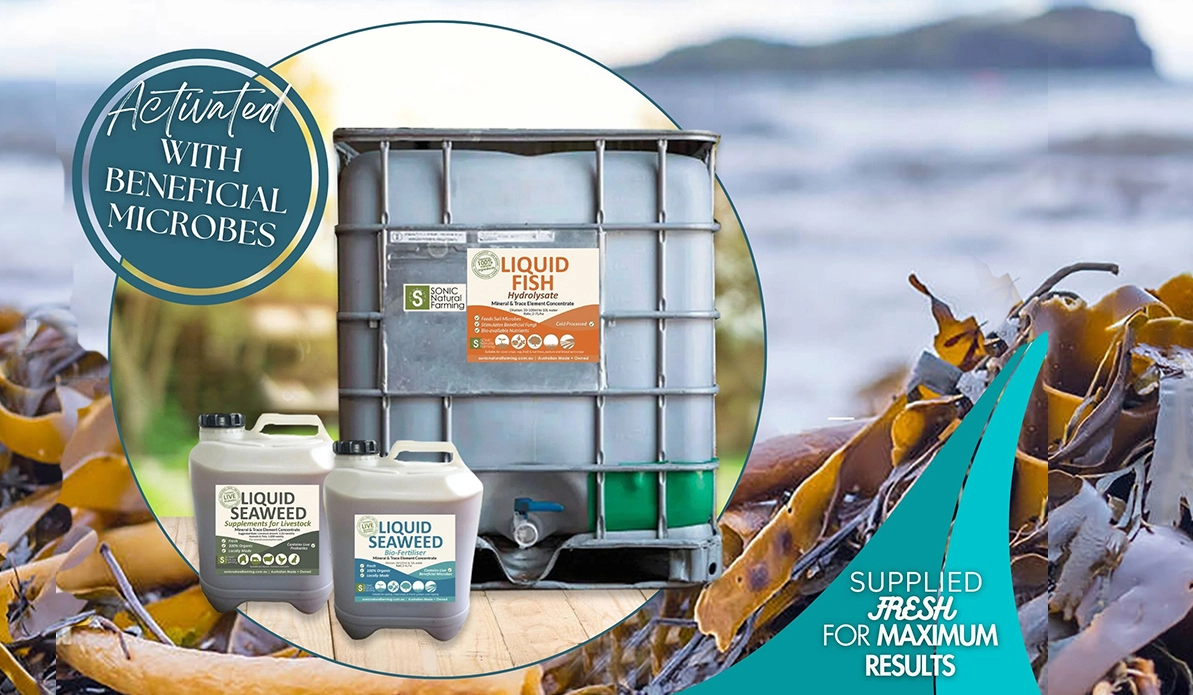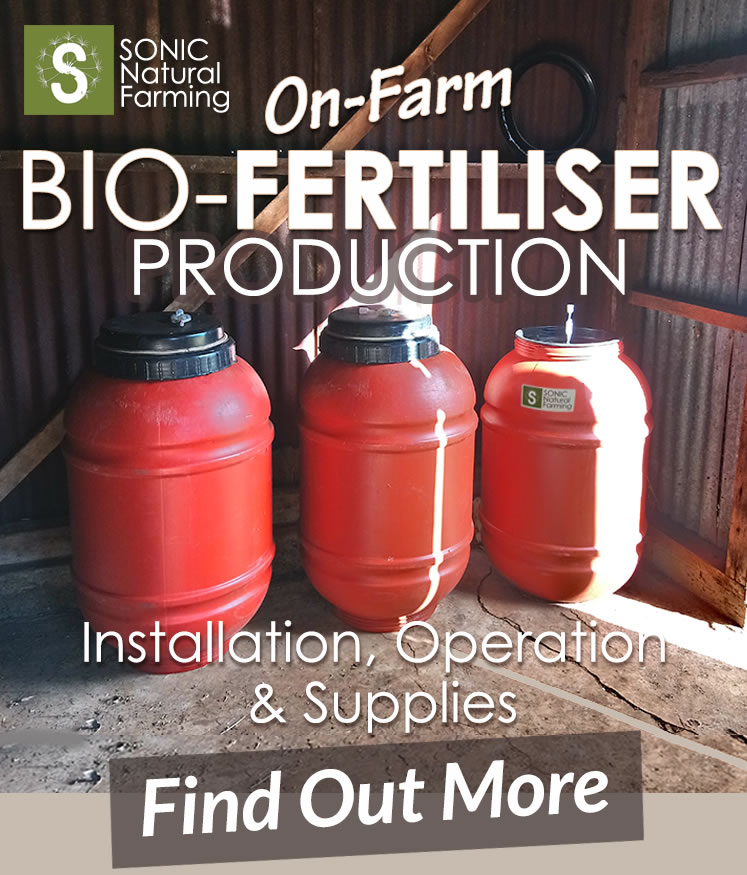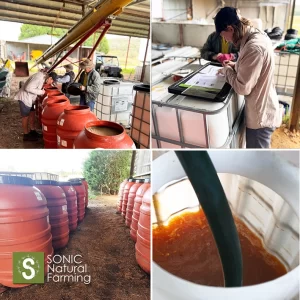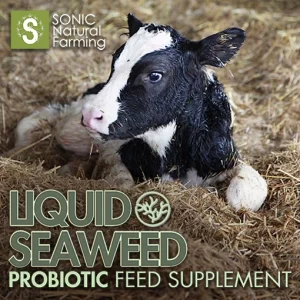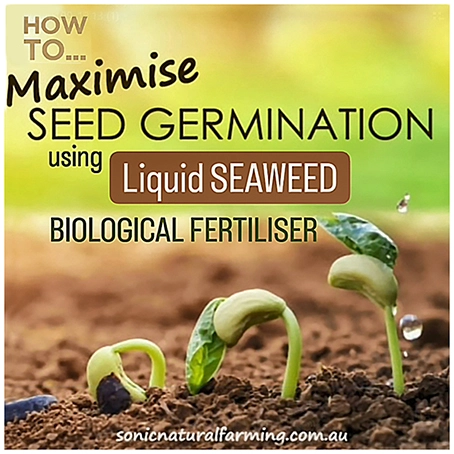Seeds are the tiny powerhouses that hold the potential for life and growth. They symbolise new beginnings, hope, and the cycle of nature. From the seeds we plant in our soil to the seeds we consume in our food, they play a crucial role in sustaining life on our planet.
In this article we look at 10 key benefits of treating seeds, using biological stimulants to guard your tiny investments from pests like insects, diseases, and environmental stresses.
Sourcing Healthy Seeds
A seeds microbiome is the collection of microbes that live on and inside the seed. As the seed grows and develops, these microbes communicate with (quorum sensing), and are shaped by, their environment. A healthy microbiome, inside the seed, is important for the plant’s growth, development, and resistance to disease.
Seeds preserve their own microbiome and the natural integrity of the plants genetics
Seeds grown without synthetic pesticides, or treated with fungicides, produce healthy seeds. Open-pollinated seeds allow for natural pollination by insects, birds, wind, or other natural mechanisms, promoting genetic diversity within plant populations.
Through responsible seed aquisition, and treatment practices, we can cultivate a more resilient agricultural system that benefits both the current, and future, generations of plants and seeds.
See below for some Australian commercial suppliers of bulk chemically untreated seeds.
What is Biological Seed Treatment?
Biological seed treatment is a 100% natural approach that involves the application of active ingredients such as beneficial fungi and bacteria. These can include bacterial and fungal inoculants, microbial biostimulants, biologically activated fertilisers, plant biostimulants, and trace minerals.
Biologically treated seeds enhances the seeds natural abilities and provides it with a strong foundation for growth
Applying beneficial microbes, in liquid form, ensures that the seeds are coated evenly with these biological substances, and provides them with the essential support they need, right from the start.
Evenly coating the seeds ensures that these valuable components, ie minerals and microbes are readily available to support the seed throughout its early development stages.
What are the Benefits of Biological Seed Treatment?
Biologically treated seeds offer numerous advantages for farmers and growers looking to optimise crop production.
Treating seeds with natural biostimulants enables the products biology close proximity to the crop root system, from day one
Proximity is critical for microbes that are dependent upon a relationship with the plants roots and rhizosphere community. The benefits, of assisting this natural symbiotic relationship, ranges from promoting healthier seed germination to enhancing resistance against pests and disease.
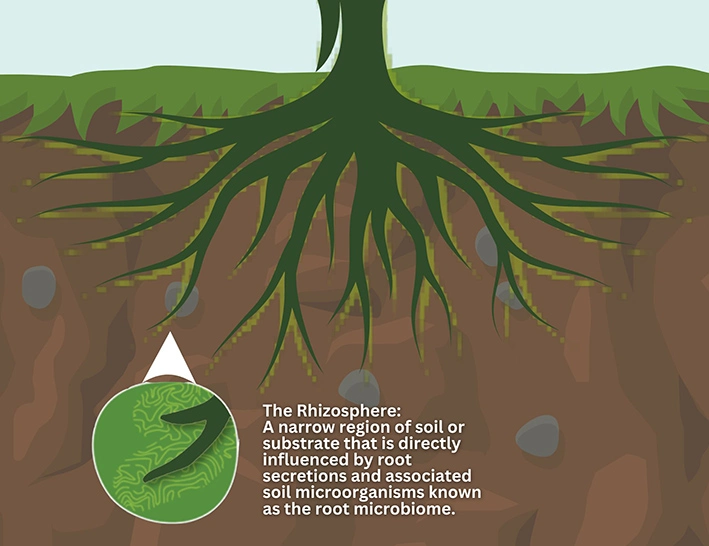
Applying biological seed treatments can significantly improve agricultural outcomes. Some of the main advantages of biological seed treatment include;
1. Biological Seed Treatment can Accelerated Seed Germination
Faster seed germination has several advantageous for farmers and growers. Benefits include allowing plants to establish themselves more rapidly, giving them a head start over potential competition from weeds or adverse environmental conditions. Accelerated germination can also produce a more uniform plant growth across a field or garden bed.
2. Plants Grow Stronger and Better when Seeds are Biologically treated
Treated seeds, using natural biostimulants like biologically activated liquid fertiliser, helps plant roots and crops become stronger and more resilient, leading to improved yields and overall plant health.
Unlike conventional chemical treatments, organic biological seed treatments harness the power of nature to stimulate plant growth. The best natural treatments contain ‘living’ beneficial microorganisms, enzymes, and other organic compounds, such as the natural growth hormones found in seaweed biological fertiliser.
With quality organic compounds made available to the plant, it soon establishes a symbiotic relationship with the beneficial microorganisms within ‘itself,’ and in the plants own environment. This symbiosis enhances root development, nutrient uptake, and overall growth potential.
3. Beneficial Biology Helps Plants Fight off Pathogens
Organic biological seed treatment plays a pivitol role in enhancing plant health by harnessing the power of nature’s own defenses.
Biological seed treatment enable plants to build a strong immune system against pathogens
These treatments work by fostering a healthy microbiome in the soil surrounding the treated seeds, creating an environment where beneficial microbes can thrive and form protective networks around the plant roots.
Nature’s ‘army’ of microorganisms, and their communities, help to outcompete harmful pathogens, preventing them from taking hold and causing damage to the plant.
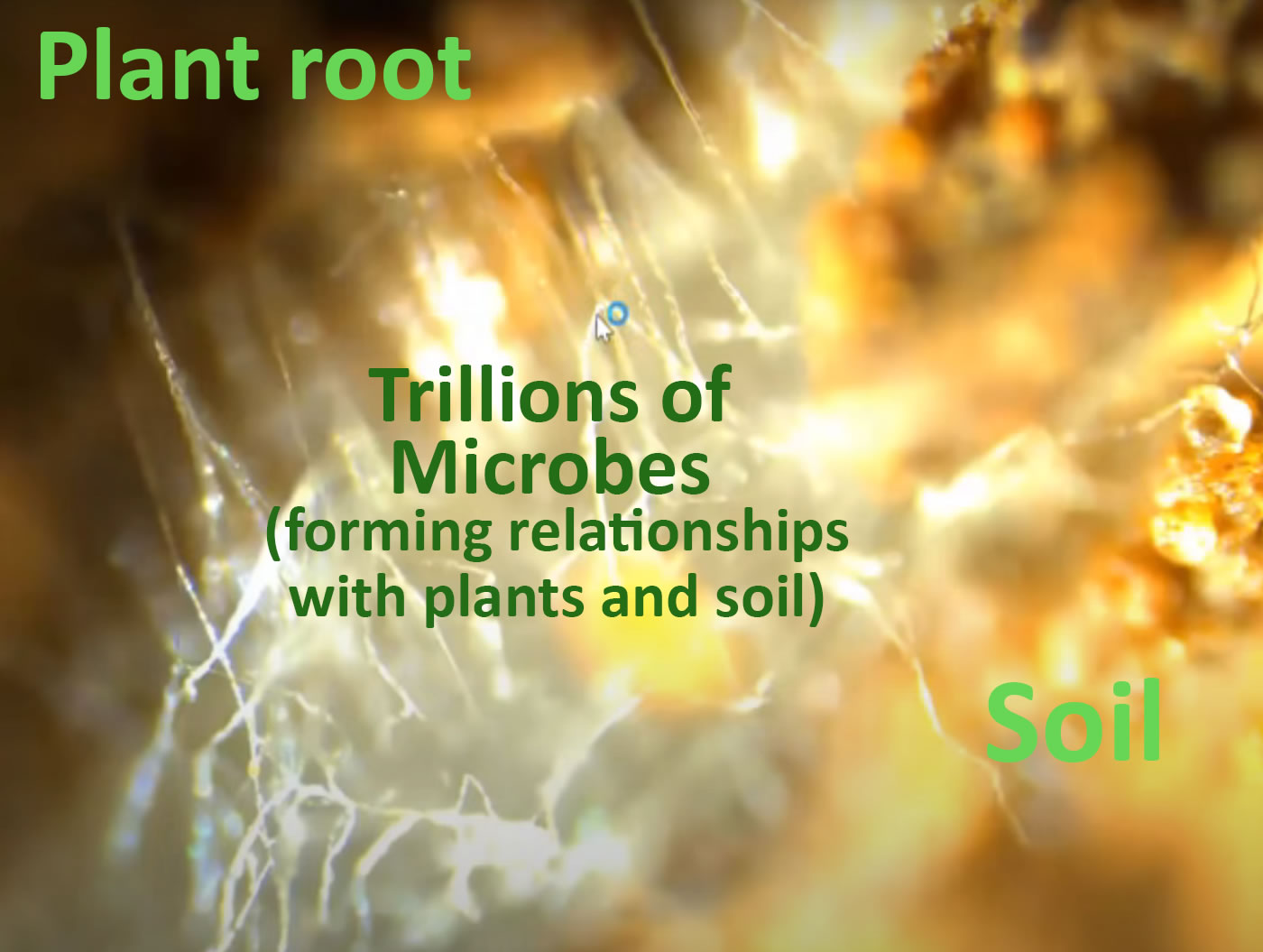
4. Biological Seed Treatments assist Healthier, Nutrient-Dense Crops
Organic biological treatments, such as beneficial microorganisms and plant extracts, work by enhancing the natural processes within the plant. These agents can stimulate seed germination, promote robust root development, and strengthen the plant’s immune system, making it more resilient to environmental stresses and pests.
By incorporating these organic treatments into your seeding, can ensure your plants thrive from the very beginning, leading to healthier, more nutrient-dense crops that have a longer shelf life. This not only benefits the grower, but also the end consumer, who can enjoy produce that is fresher, more flavorful, lasts longer, and is more nutritious.
5. The Increased Beneficial Biology Helps Nutrient Uptake by Plants
With organic nutrients made available to the soil biology, there is an increase in nutrient cycling, converting atmospheric nitrogen and breaking down organic matter into forms that are readily accessible to plants.
Biological seed treatment leverages the power of nature to enhance plant nutrient availability
The increase in microbial populations results in improved soil health and fertility. As these beneficial microorganisms thrive, they help capture essential nutrients such as nitrogen, phosphorus, and potassium, and enhance the availability of nutrients for plants. This translates to healthier plants with improved growth and resilience.
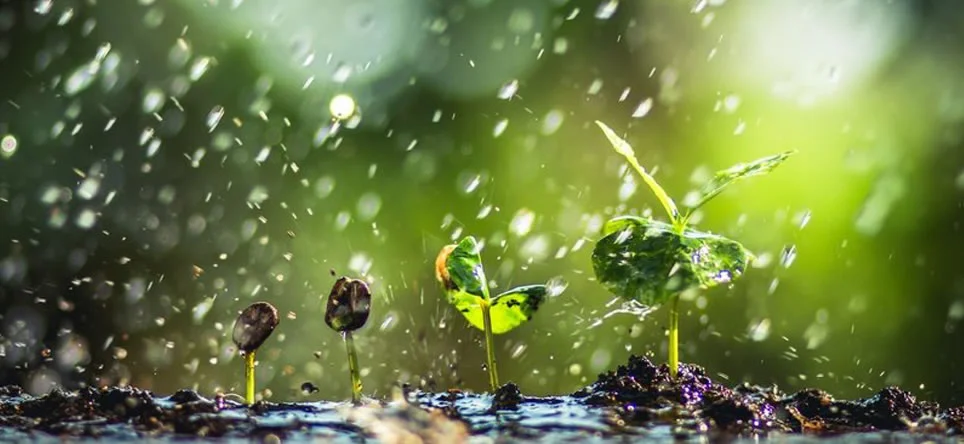
6. Biological Seed Treatment Enhances Root and Shoot Growth
Biological seed treatment significantly enhances both root and shoot growth by introducing beneficial microbes and nutrients directly to the seed. These microbes establish a symbiotic relationship with the plant from the moment of germination.
The microbes work to improve nutrient uptake, promote healthier root development, and increase soil nutrient availability. As a result, the plant’s roots grow deeper and stronger, enabling it to access more nutrients and water.
Simultaneously, the treated seed shows improved shoot growth, leading to stronger, more vigorous seedlings. This boost in both root and shoot development promotes overall plant health, increases resilience to stressors, and results in higher yields.
7. Biological Seed Treatment Reduces the Need for Agrochemicals
Biological seed treatments offers a chemical-free alternative to conventional methods of using synthetic pesticides and fungicides.
By utilising organic biological seed treatment, farmers can reduce their reliance on synthetic chemicals, contributing to a more environmentally friendly agricultural system. This approach aligns with sustainable regenerative farming practices, and helps maintain critical soil health for feeding future generations.
8. Treating Seeds Naturally Promotes Stronger Next Generation Plants and Seeds
By using organic biological treatments, the seeds are fortified with a healthier seed microbiome. This results in the plants producing stronger seeds and more resilient plants in their next generation. This has a profound effect on promoting optimal seed germination, root development, and overall plant health from one generation to the next.
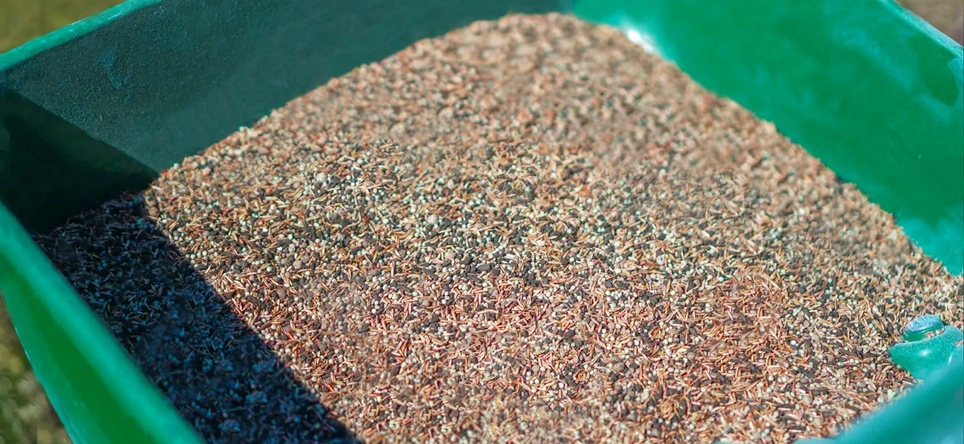
9. Seed Treatments can be Easy to Apply
Biological seed treatment is a sustainable and environmentally friendly practice that can be implemented by hand, or using common farm equipment. This method involves fine spraying or coating seeds with naturally occurring organisms like bacteria or fungi. These beneficial microbes can protect seeds from diseases and pests, and ultimately promote healthy plant growth.
Organic biological seed treatment offers a chemical-free alternative to conventional seed treatments, aligning with the principles of organic and regenerative farming. By utilising low-cost materials, existing farm equipment, like sprayers or direct seeders, farmers can efficiently apply these treatments to their seeds before planting.
10. Biological Seed Treatment is Cost Effective
Biological seed treatment offers an incredibly cost-effective solution with high returns for growers. By using a biologically active liquid, this method requires only a modest application of about 5 liters of concentrate per tonne of seed, making it highly efficient and affordable.
This low-cost treatment not only boosts seedling vitality and growth but also enhances long-term yields, providing excellent value for investment. It’s a smart, sustainable choice for anyone looking to maximise their crop potential without breaking the bank.
“For direct-seeded crops, seed treatments are the least expensive and highest return application a grower can apply.” – John Kempf
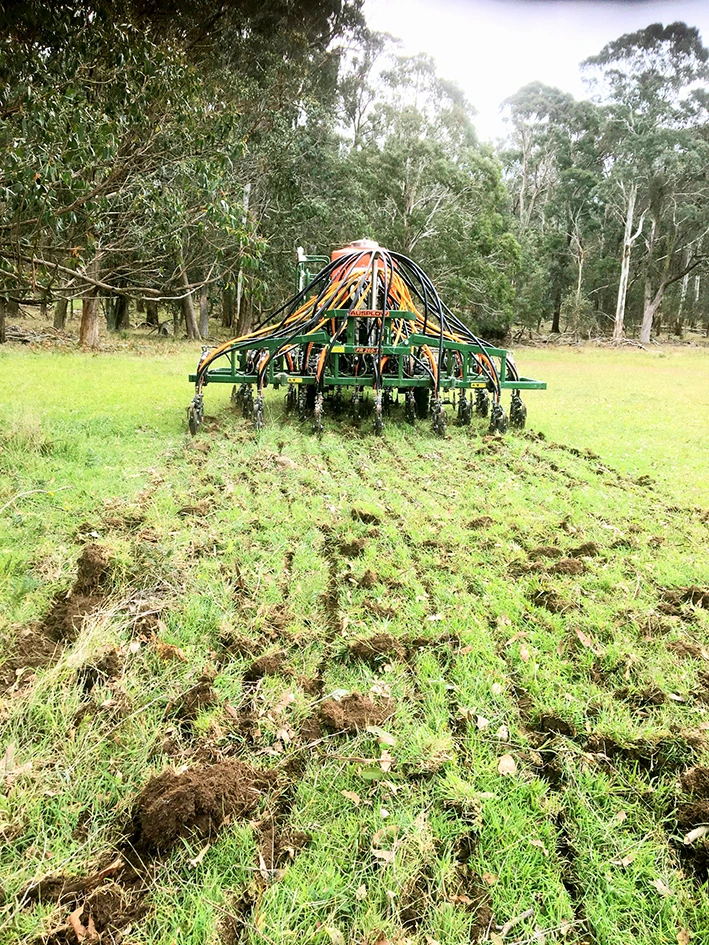
Ausplow direct seeder and liquid inject machine (above image), using SONIC Liquid Seaweed Biological Fertiliser and Liquid Fish Hydrolysate
Biological Seed Treatment Methods Using Liquid Inoculants
Liquid biological seed treatment involves applying a concentrated formulation of minerals and beneficial microbes directly to the coat of the seeds.
Treating seeds, on-farm, can be done in a few ways;
1. Seed Spraying Application
Spread seeds over a tarp, shade cloth, or a large clean surface. Using a fine nozzle, lightly spray the seeds with the biological seed treatment, covering the surfaces, while moving the seeds around. Allow the seeds to dry for min.1-3 hours before planting.
Precautions; Do not over-wet the seeds, as it may cause germination or clumping.
Depending on your seed planting method, biological seed treatments can also be mixed with a 10% solution of sugar-water, using brown sugar, molasses, or jaggery. Jaggery is a concentrated product of cane juice, and often date or palm sap, that has not been separated from the molasses and crystals.
Applying a sugary solution to seeds does 2 things;
1. The solution sticks to the seeds, along with the biostimulant, and
2. The sugary solution provides food for the beneficial microbes, so that they can quickly reproduce and form networks around the plant roots as it grows.
Additionally, to help dry the seed, and to add organic Micronised Phosphorus and Calcium, apply a coating of Guano Powder to the mix.
2. Seed Soak Application
If seeds are being hand planted, seed soaking in biostimulants beforehand, is a great way to activate them and inoculate the seeds with healthy microbes. For this method, simply dilute the inoculant with water, or as per the manufacturers instruction, and allow the seeds to soak for 5-10 hours or overnight.
Plant the inoculated seeds the next day. Precautions; Some seeds such as certain legumes should not be pre-soaked.
3. In-Furrow Application
In-furrow application is a precise and effective method of delivering biological seed treatments. Liquid in-furrow application allows farmers to apply biological formulations of beneficial microbes to the seed and soil at the time of planting.
To treat seeds in-furrow, depending on your planting method, apply the liquid formulation at the same time, as a soil drench, while planting the seeds. This can be done using a sprayer, or by hand with a watering can. Cover the seed in the biological liquid solution as well as drenching the surrounding soil.
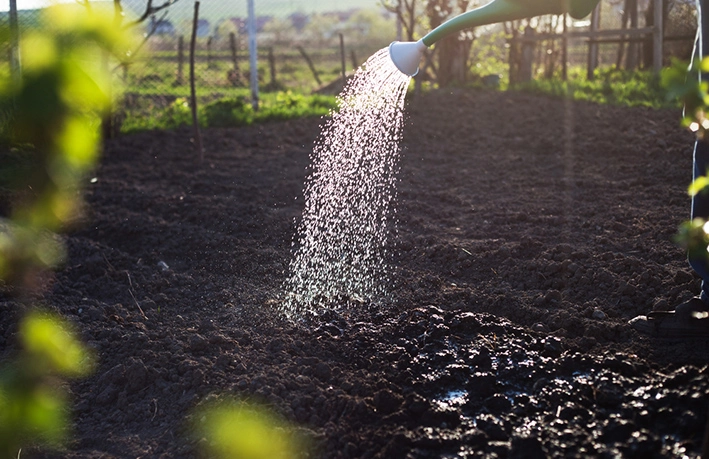
Optimal Times to Treat Seeds
Biological Seed Treatment in winter pasture cropping has proved particularly beneficial for farmers. The reason why winter applications, in certain regions, can be effective is that it is the time of year when all the underground ‘activities’ occur, eg. plant root and microorganism activity.
Pasture and cover cropping at this time enables the beneficial bacteria to populate, and flush the ground with a large portion of available nutrients. These nutrients are then ready and available when the ‘activity’ starts above the ground.
Seed Selection Considerations
Sourcing untreated (chemically) seeds for biological seed treatment is essential to ensure the effectiveness and safety of the treatment process. Chemically untreated seeds are free from synthetic chemicals or pesticides, providing a clean base for the application of biological agents. This allows the biological treatments to work efficiently, promoting plant health and disease resistance without interference from harmful chemicals.
It is important to verify that the seeds are untreated through proper documentation and supplier transparency to guarantee optimal outcomes in sustainable agricultural practices.
Investing in organic biological seed treatments is a simple yet powerful way for growers to enhance seed germination and plant growth.
By adopting these methods of applying organic biological seed treatment, farmers and gardeners can improve seed quality, increase crop yields, and contribute to a more sustainable agricultural practice. It’s a cost effective, simple yet impactful technique that supports plant health, human health and environmental conservation.
RELATED ARTICLES
How to Prevent Mould and Algae on Seedlings
Boosting Seed Germination using Biological Fertiliser
RELATED EXTERNAL LINKS
Nutritech Solutions – Seed Treatment (YouTube)
What are Beneficial Microbes – Video Playlist (YouTube)
Regenerative Agriculture – Video Playlist (YouTube)
SEED SUPPLIERS (Untreated Seeds) AUSTRALIA
- Meredith Seed Co – Armidale, NSW
- Down Under Covers – VIC
- Eden Seeds – QLD
- RP Seeds – Mudgee, NSW
- Fairbanks Seeds – VIC
- Happy Valley Seeds – Riverstone NSW
Disclaimer:
The information in this article is for general guidance and not professional advice—always consider your individual circumstances or consult with a professional before making decisions. For more details, please review our full Disclaimer.
Want to see how we can help you beat the high cost of fertiliser?




